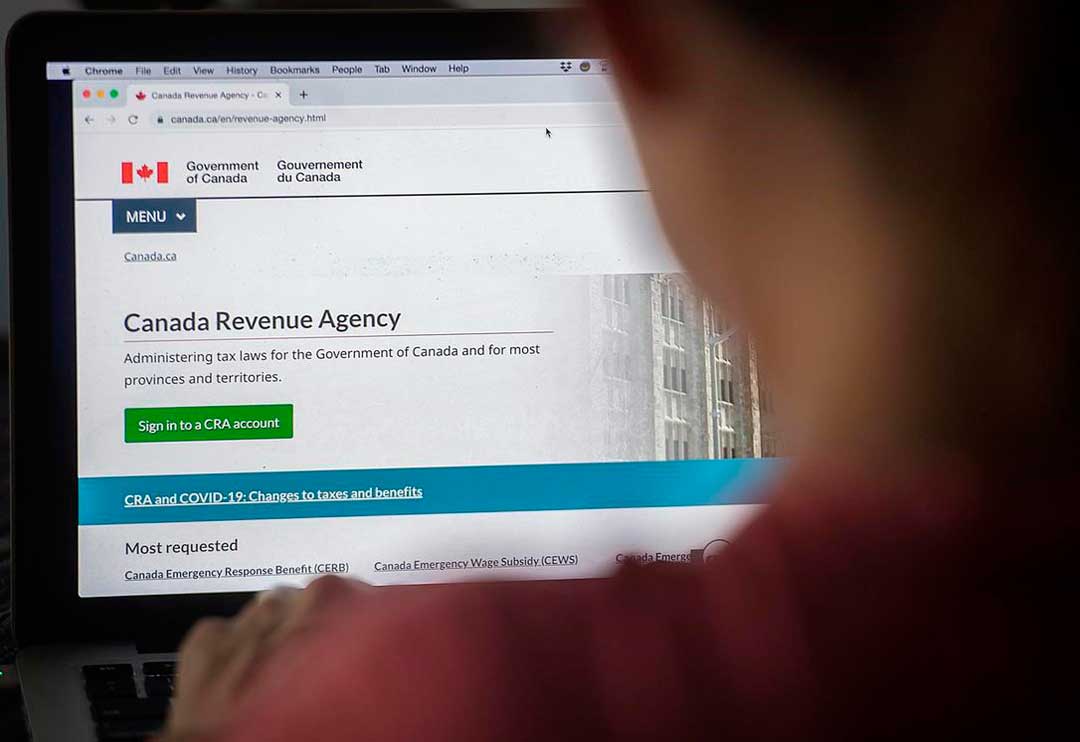
The Canada Revenue Agency has recently locked out 800,000 users from their online accounts, out of fear that people’s usernames and passwords have been hacked.
Citing the cybersecurity risk of having this information in the hands of potentially bad actors, obtained through email phishing schemes or third-party data breaches, the CRA says the move is precautionary.
“Like the accounts that were locked in February, these user IDs and passwords were not compromised as a result of a breach of CRA’s online systems, rather they may have been obtained by unauthorized third parties and through a variety of means by sources external to the CRA,” said the CRA in a statement.
“The total number of accounts impacted is roughly 800 thousand,” said the CRA.
The agency said that unlike what happened in February, it wanted to warn people ahead of time that the access to their accounts may be down, given its tax time.
If attempts are made to log in to a frozen account, the user will receive an error message informing them that their CRA user ID has been revoked.
Impacted individuals will be contacted by the email address associated with their accounts, or if there was not one on file, by mail.
Taxpayers can re-gain access to their CRA account by going to the CRA login page and creating a new CRA user ID and password or by using a different login method associated with their CRA account, the agency says.
It may take until March 22 for the issues to be resolved, but after that date, if users are unable to log in they should call the CRA.
As part of its ongoing monitoring the agency keeps an eye on any government-used usernames and passwords that go up for sale on the dark web and the CRA then moves to lock these accounts. This can happen when people use the same login information across multiple websites.
“All Canadians should monitor their CRA accounts for any suspicious activity including unsolicited changes to banking, mailing address or benefit applications made on their behalf. In addition, passwords should be updated regularly,” said the CRA.
Source: CTVNews
Newsletters
No Results Found
The page you requested could not be found. Try refining your search, or use the navigation above to locate the post.
Events & Sponsorship
No Results Found
The page you requested could not be found. Try refining your search, or use the navigation above to locate the post.
Articles & Publications
Reporting income from Airbnb
Reporting Income from Airbnb Like other, more traditional, rentals, the Canada Revenue Agency (CRA) has specific rules surrounding the declaring of rental income, which you should become familiar with as soon as possible. What you need to know about earning income...
What is Income Splitting?
What is Income Splitting? By definition, income splitting involves diverting dividend income (and certain other types of income) from one family member to another member in a lower tax bracket resulting in substantial tax savings. By way of example, let’s take the...
Real Estate Tax Update
Real Estate tax update Canada Revenue Agency (CRA) has taken substantial changes to control real estate transactions. In recent years, CRA has increased its real estate audits, particularly in the Greater Vancouver and the Greater Toronto areas, where increased real...
Snowbirds
Snowbirds, March 1, 2019 The age-old Canadian tradition for retirees: when it starts getting cold outside, Canadians will “flock” to the warmer shores of the United States. Are there any tax considerations in the United States we need to be aware of when your retired...
Beware of scammers posing as CRA employees
Beware of scammers posing as CRA employees. Scammers posing as Canada Revenue Agency (CRA) employees continue to contact Canadians, misleading them into paying the false debt. These persistent scammers have created fear among people who now automatically assume that...